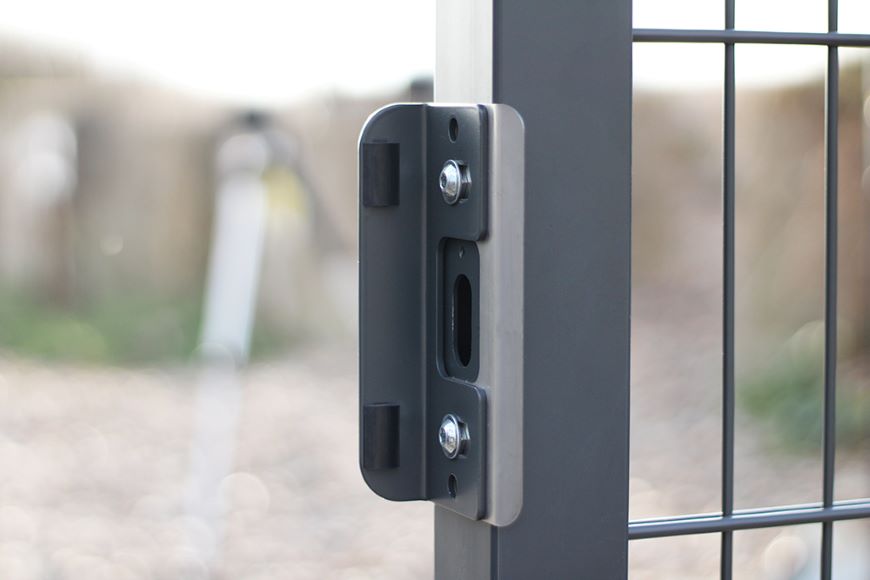What are gate keeps/strike plates?
Our lock kits will usually consist of the locking mechanism and a receiving part which goes on the post. This receiving part is either a strike plate or a gate keep.
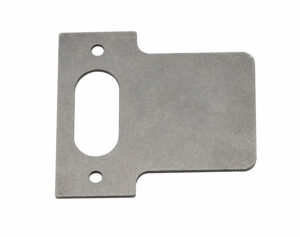
A strike plate is how we describe a metal plate installed on the post, designed to guide the latch into the receiving hole in the gate frame. A strike plate makes the closing smoother as it usually has a slight angle to receive the latch bolt. The strike plate will also cover the rough edges of the receiving hole in the gate frame and prevent the latch or deadbolt from slamming into the frame every time the gate is closed.
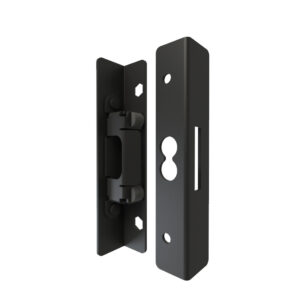
A keep on the other hand both receives and houses the latch or deadbolt itself. The keep is installed on the frame and doesn’t require a large hole drilled into the gate frame itself as it has the receiving hole built in. A keep will also prevent the gate from being opened the wrong way due to where it is installed. You can read more tips about how to stop your gate from opening too far here.
Why do I need a keep fitted on my gate post?
A keep – commonly known as a strike or receiver – is fitted to your gate post, receiving the latch, and holding the gate shut. Ensuring your lock is used together with a keep is essential for several reasons:
1. It ensures the latch operates smoothly
If the latch is striking against the square edge of the gate post, the sudden impact can easily cause damage to the insides of the lock, especially if it is on a gate that has high usage. A keep will have a sloped edge to receive the angle of the latch, enabling it to operate smoothly with minimal impact.
2. It covers up the hole in the post
Often a hole will be drilled in the post to enable the latch to extend fully for maximum security. Using a keep in this situation is an easy solution for hiding rough edges and giving it a neat finish. Alternatively, some keeps have enough depth to house the full length of the latch, meaning you don’t need a hole in the post!
3. It stops the gate swinging in the wrong direction
A gate, similar to an internal door, needs a stop to prevent it swinging in the wrong direction. This would normally mean you would need a custom-made stop. This would have to be fabricated which is extra work and cost. Instead, a lot of keeps have an integrated stop plate with integral rubber buffers, saving time and money in fabrication. If you want to know more about how to stop your gate from slamming, read the following blog.
4. It can add security
Keeps often have extra security features, for example the Gatemaster interlocking keep which means that the gate cannot be ‘sprung’ off the gate post. A keep fitted with an outside stop plate can also be a security feature as it can prevent the latch being accessed and forced with pliers or other tools from the outside.
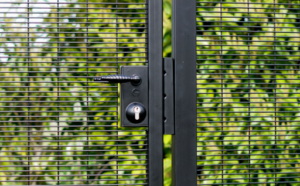
Installing strike plates and keeps is one way for you to take better care of your gate and lock. If you want more tips on taking care of your lock, you can read more here.
Our range of keeps
Are you after a keep with some more features, check out our selection:
- BSK – perfect for use with the Gatemaster Superlock range, this keep is a 2-part device in which one side fits to the gate and one side fits to the post. With integral rubber buffers and all fixings included, this will ensure maximum security and enhance the longevity of your lock.
- BSKS – similar to the BSK but with an interlocking function for added security. When you close the gate, the 2 parts are interlocked and therefore it cannot be prised off the post.
- BSKG – a popular choice for use with any of our latching locks (a lock that be slammed shut), this is perfect where you have got a smaller gap between the gate and the post. Featuring a stop plate with rubber buffers and fully adjustable for different sized gates.
- Strike plate – we include strike plates with most of our latching locks. Simple but effective, you install them over the hole in the post and bend it to receive the latch. Generally used where security is not the top priority.
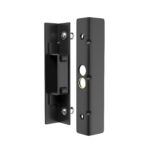

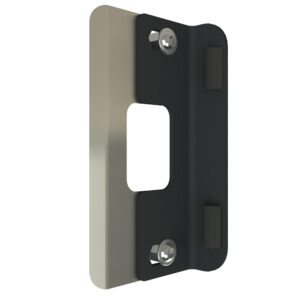
We always advise that you fit some form of keep or strike when you have a latching lock. If you are not sure which option is best for you, just give us a call or send a message and we’ll be happy to help!



